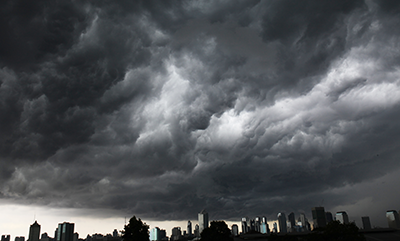More Research Needed into Spectrum of Stress Disorders.
 With attention to stress-disorder diagnoses growing with recent increases in traumatic events, including terrorism, there is a need for further research into such disorders beyond an examination of post-traumatic stress disorder (PTSD), a School of Public Health researcher says in a journal article.
With attention to stress-disorder diagnoses growing with recent increases in traumatic events, including terrorism, there is a need for further research into such disorders beyond an examination of post-traumatic stress disorder (PTSD), a School of Public Health researcher says in a journal article.
Writing in Clinical Epidemiology, Jaimie Gradus, assistant professor of epidemiology at SPH and a researcher with the National Center for PTSD of the VA Boston Health Care System, reviews the literature to date on the prevalence of stress disorders and urges that more research be done to obtain “a more complete picture of the impact all stress disorders have on the many people living with these diagnoses.” While there is a growing recognition of the importance of PTSD, she says, the literature on other diagnoses related to stressful or traumatic events is “scant.”
Gradus, also an assistant professor of psychiatry at the School of Medicine, says that within the International Classification of Diseases, 10th edition (ICD-10) — the classification system on which the review focused — there are five diagnoses that can be given following a stressful or traumatic event from which a person is having difficulty recovering. These include PTSD, adjustment disorder, acute stress reaction, and two “catch-all” diagnoses given to people who are experiencing distress, but do not meet the full criteria for one of the other disorders.
Of these stress disorders, only the prevalence of PTSD has been estimated in multiple general population studies: about 6.8 to 7.8 percent in the U.S., and higher among women than men.
Studies also have found that patients with PTSD have higher odds of major depression, generalized anxiety disorder, and substance use and dependence than those without PTSD. Research also has shown an association between PTSD and cardiovascular disease, Gradus notes.
“With regard to specific prevalence estimates. . . the U.S. consistently has a higher documented prevalence of stress disorders, specifically PTSD, than other Westernized countries,” the review says. “Additional work is needed to examine the prevalence and incidence of stress disorders across populations and time and elucidate the causes of these differences.”
Gradus also calls for more research into the mechanisms through which stress disorders result in an increased mortality risk from suicide and other causes, and for more intervention and prevention efforts.
“In sum, stress disorders are a critical public health issue with potentially deleterious outcomes that have a significant impact on those living with these disorders, the health care system and society,” she writes. “It is only through an awareness of the impact of stress disorders that appropriate resources can be allocated to prevention and treatment.”